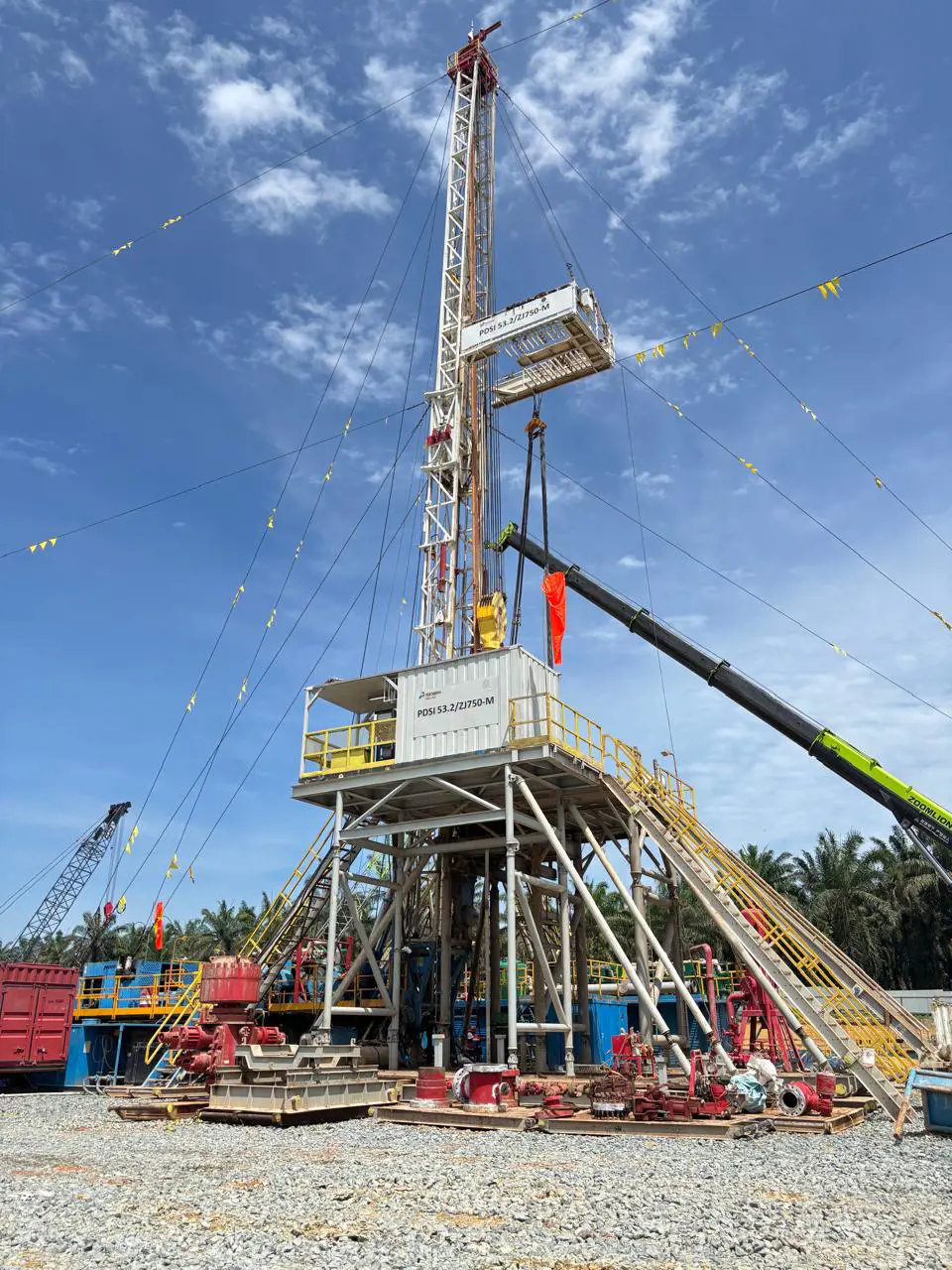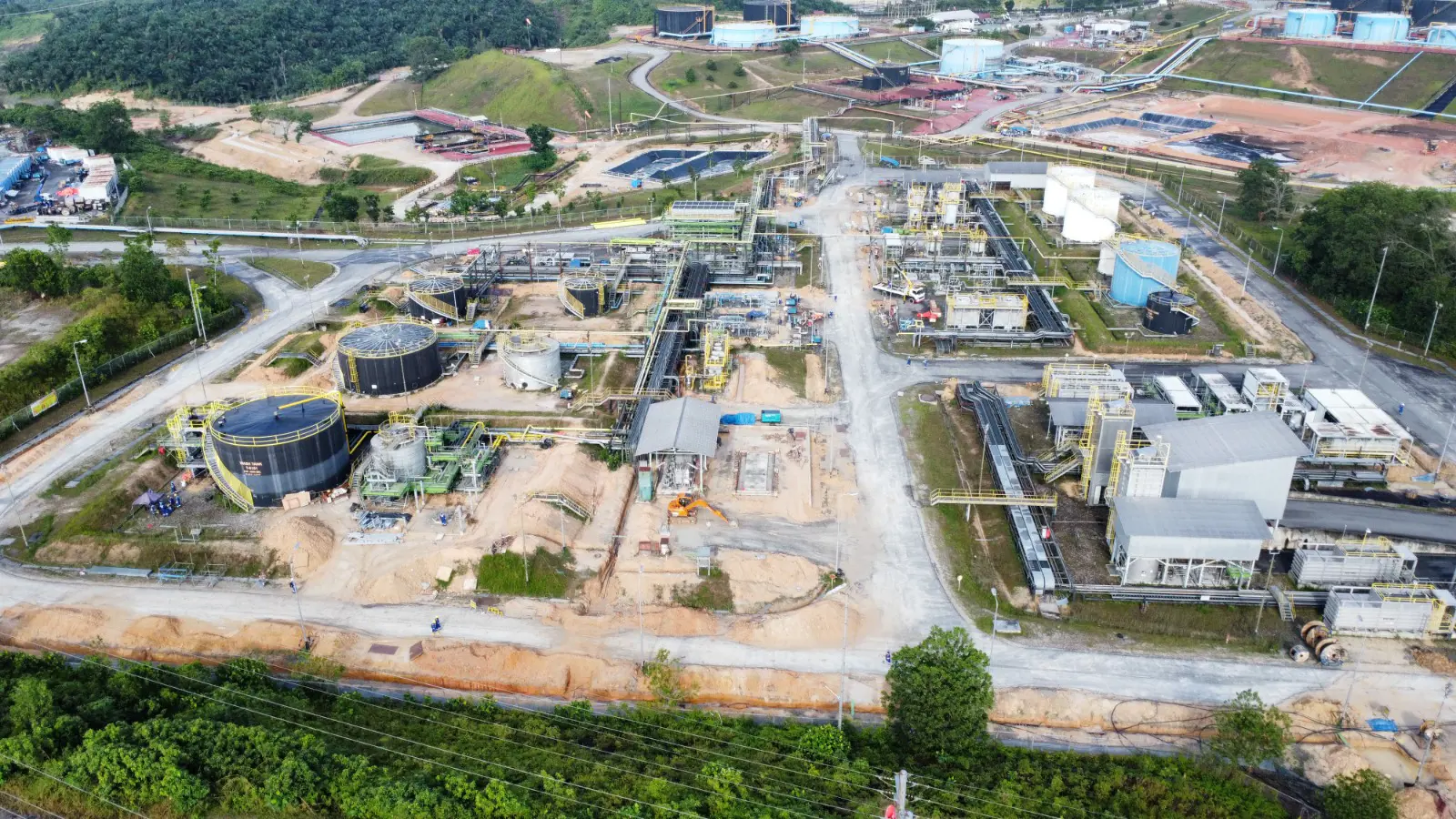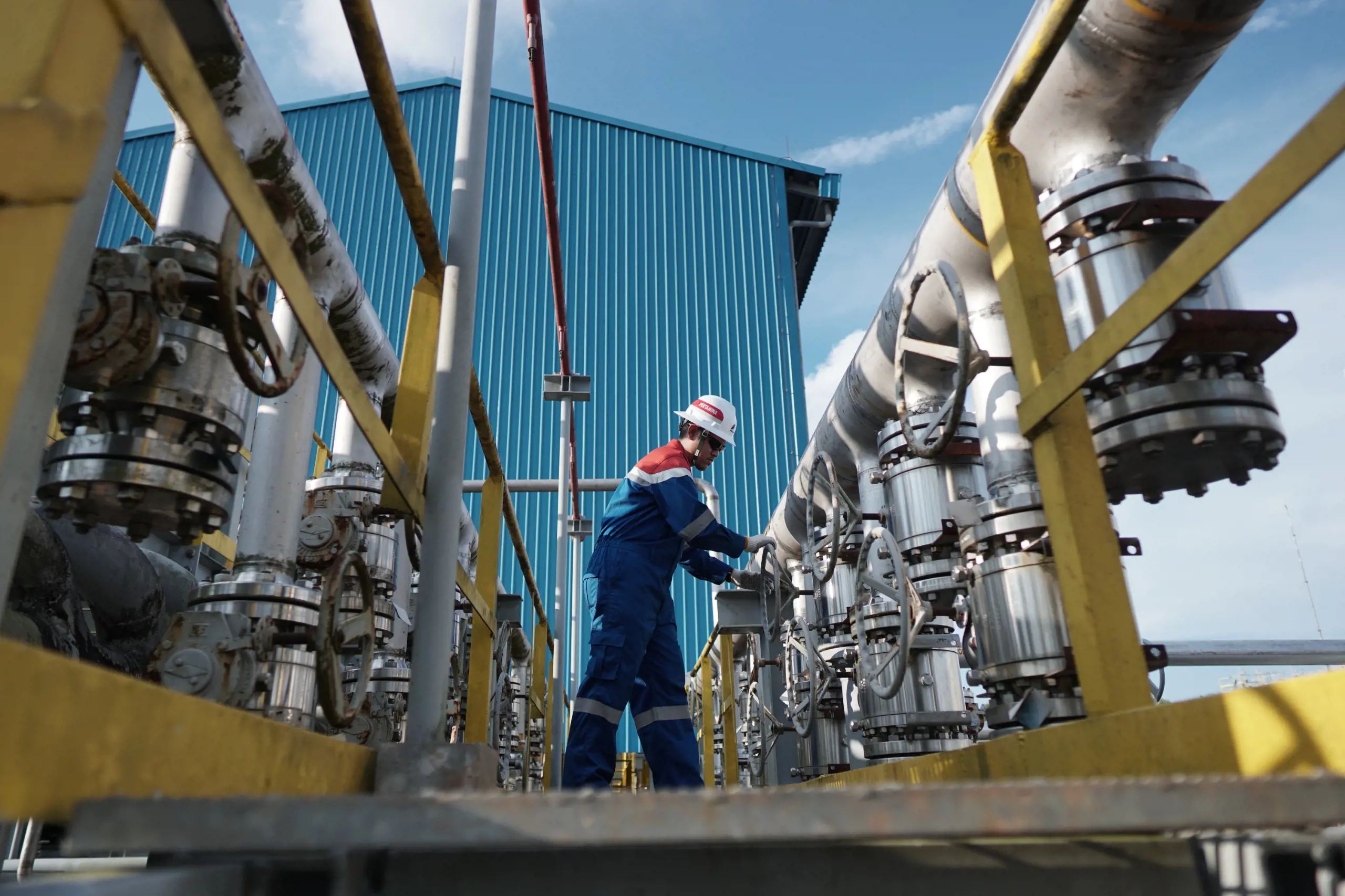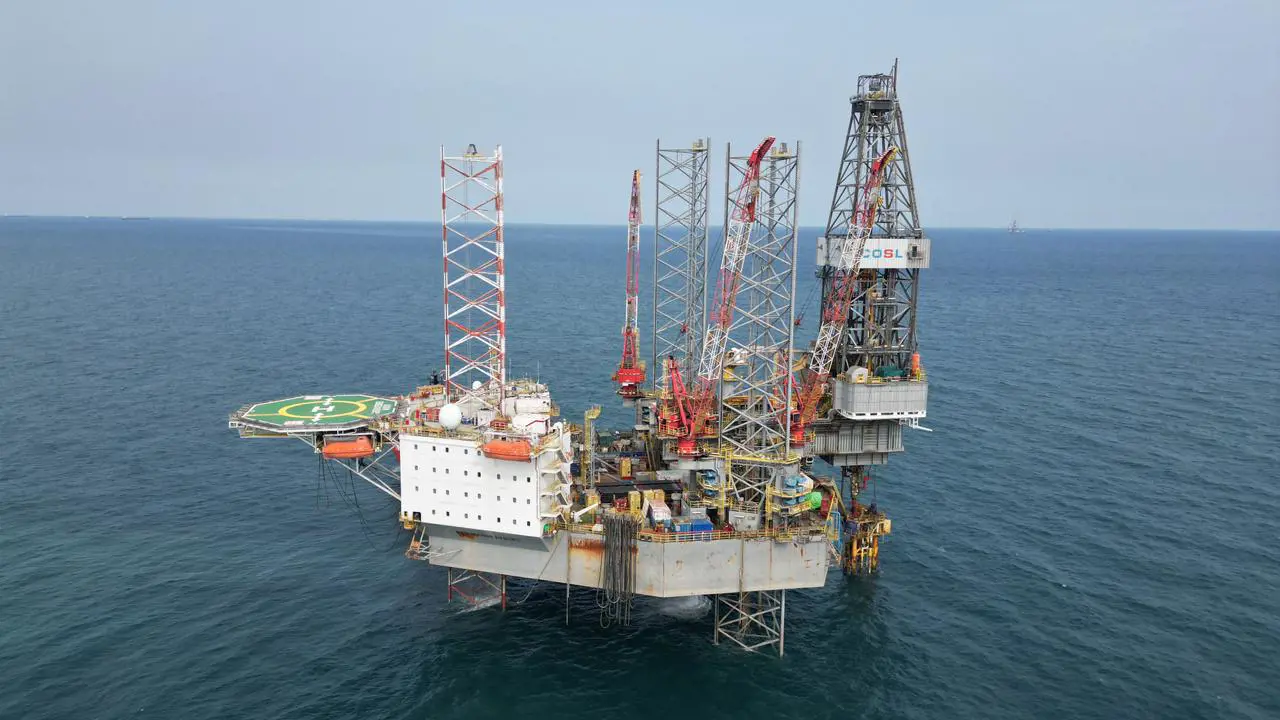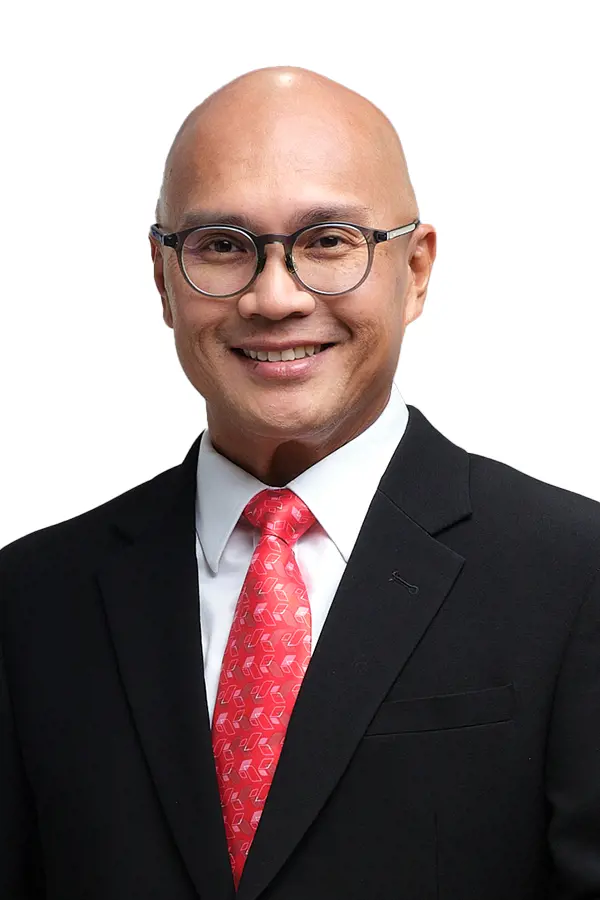Commitment to ESG, PEP Donggi Matindok Field Community Empowerment Monitoring Program for Togong Tanga Cultural Communities

Banggai Kepulauan – Manajemen Pertamina EP Donggi Matindok Field Regional Indonesia Timur Subholding Upstream Pertamina, melakukan monitoring terhadap program pemberdayaan Masyarakat Adat Togong Tanga yang merupakan bagian dari suku asli Pulau Peling yakni Suku Sea Sea di Kabupaten Banggai Kepulauan.
Upaya ini merupakan bentuk komitmen terhadap kinerja Environmental, Social, Governance (ESG) dimana indigenous people menjadi salah satu indikator penting dalam penilaian kinerja keberlanjutan tersebut.
Program ini juga mendukung upaya pemerintah mencapai Sustainable Development Goals khususnya nomor 16 Perdamaian, Keadilan dan Kelembagaan yang Tangguh, no.15 Ekosistem Daratan, no. 13 Penanganan Perubahan Iklim, no. 8 Pekerjaan Layak dan Pertumbuhan Ekonomi, dan no. 5 Kesetaraan Gender.
Kegiatan monitoring dilaksanakan pada Selasa (23/01) terhadap Program Kokolomboi Lestari di Dusun Kokolomboi, Desa Leme Leme Darat, Buko, Kab. Banggai Kepulauan, bersamaan dengan kegiatan Syukuran Pencapaian PROPER Emas dari Kementerian Lingkungan Hidup dan Kehutanan (KLHK) bersama kelompok binaan.
“Kami berterima kasih kepada stakeholder yang bersama bermitra dengan kami untuk memberdayakan masyarakat di Kokolomboi agar lingkungan semakin membaik dan masyarakat berdaya secara ekonomi. Dengan kegiatan monitoring ini kami juga berharap program ini dipastikan berjalan sesuai rencana dan target yang ditetapkan, juga melakukan perbaikan berkelanjutan,” ujar Field Manager PEP Donggi Matindok Field, Ridwan Kiay Demak.
Desa Leme-leme Darat berjarak sekitar 4 km dari pusat Pemerintahan Desa, 120 km dari pusat Kabupaten Banggai Kepulauan, dan berjarak 674 km dari pusat pemerintahan Provinsi Sulawesi Tengah. Secara geografis, Desa Leme-leme Darat berada di Pulau Peleng bagian barat yang berada 2 meter di atas permukaan laut. Terdapat satu dusun yang berada di ketinggian 600 meter di atas permukaan laut yaitu Dusun Kokolomboi. Desa ini memiliki luas keseluruhan 600 hektar dengan luas pemukiman 8,5 hektar.
Data dari Pemerintah Desa menunjukkan 15,05% dari penduduk Desa Leme-leme adalah penduduk miskin. Mereka memenuhi kebutuhan hidupnya melalui kegiatan pertanian dengan sistem ladang berpindah, illegal logging, merambah hutan, dan berburu satwa baik untuk kebutuhan komersil maupun konsumsi pribadi.
Degradasi hutan secara terus menerus memperlebar kesenjangan sosial karena banyak masyarakat yang bergantung pada ekosistem di dalamnya. Deforestasi ilegal telah mengakibatkan kondisi lahan sangat kritis. Data di Kabupaten Banggai Kepulauan menunjukkan kondisi lahan sangat kritis di wilayah hutan sebesar 144, 86 Ha, dan lahan kritis sebesar 28.026,87 Ha. Selain itu, kegiatan tersebut juga telah mengancam satwa endemik Pulau Peling yakni Tarsius dan Gagak Banggai.
Program ini mengintegrasikan 3 pendekatan diantaranya ecological approach, socio-economic approach, dan socio-cultural approach. Pendekatan ekologi/ ecological approach menjadi langkah awal Perusahaan dan masyarakat untuk memperbaiki ekosistem dan rantai makanan satwa endemic yang ada di Kokolomboi.
Untuk menjaga keberlanjutan program, kondisi ekonomi masyarakat juga perlu ditingkatkan melalui cara-cara yang ramah lingkungan dan linier dengan tujuan dari pelaksanaan program. Perusahaan bersama dengan para pemangku kepentingan yang lain kemudian menciptakan inovasi budidaya lebah madu batu dan dahan yang ramah lingkungan melalui inovasi rumah lebah batang palem. Melalui inovasi ini, kini para petani madu sudah tidak melakukan perusakan pohon dan tebing di kawasan Kokolomboi.
Budidaya lebah madu menjadi salah satu upaya rehabilitasi kawasan hutan mengingat peran lebah sebagai pollinator yang membantu penyerbukan tanaman di sekitar kawasan. Selain itu, budidaya lebah madu ini juga menjadi mata pencaharian masyarakat dari yang sebelumnya menjual kayu hasil hutan dan berburu satwa. Petani madu yang terlibat didalam kawasan taman Kehati kokolomboi mencapai 10 orang dengan kemampuan panen madu batu sebessar 2.000 liter/ tahun dan madu dahan sebesar 1.750 - 2.000 liter/ tahun.
Kelompok tani madu Kokolomboi turut melibatkan petani madu diluar Kawasan untuk memenuhi permintaan pasar, hingga saat ini sebanyak 245 anggota telah terafiliasi dengan kemampuan produksi sebesar 8.400 liter/ tahunnya.
Berdasarkan data kunjungan yang dikelola oleh Pengelola Taman Kehati Kokolomboi tercatat sebanyak 453 wisatawan domestik dan lebih dari 60 wisatawan mancanegara dari 22 negara yang memberikan pendapatan tambahan bagi masyarakat sekitar sebagai penyedia jasa lingkungan dengan ketentuan tamu domestik sebesar Rp 60.000/orang/hari dan tamu asing Rp 200.000/orang/hari.
Selain manfaat ekonomi, program ini telah memberikan dampak perbaikan terhadap lingkungan melalui restorasi lahan sebesar 4 Ha serta pemulihan ekosistem dengan penanaman 2.500 bibit flora endemik yang sekaligus dapat menjadi pengkayaan pakan untuk satwa endemik. Perbaikan lingkungan juga ditunjukkan dengan adanya peningkatan satwa endemik Tarsius Peleng dari sebelumnya 17 ekor menjadi 46 ekor dan peningkatan Gagak Banggai dari 1 ekor menjadi 8 ekor.
INFORMASI UMUM
Regional Indonesia Timur Subholding Upstream Pertamina merupakan pengelola hulu migas yang secara geografi tersebar di Jawa Timur, Sulawesi, Kepulauan Maluku dan Papua yang terdiri dari asset offshore dan onshore. Selain itu, terdapat 1 aset downstream yaitu Donggi Senoro LNG. Wilayah kerja di bawah Regional Indonesia Timur yaitu Zona 11 (Alas Dara Kemuning, Cepu, WMO, Randugunting, Sukowati, Poleng, Tuban East Java), Zona 12 (Jambaran Tiung Biru, Banyu Urip), Zona 13 (Donggi Matindok, Senoro Toili, Makasar Strait), dan Zona 14 (Papua, Salawati, Kepala Burung, Babar Selaru, Semai).

